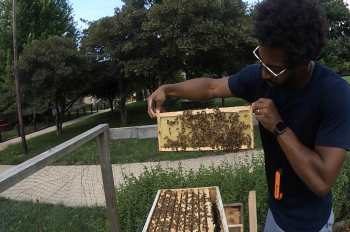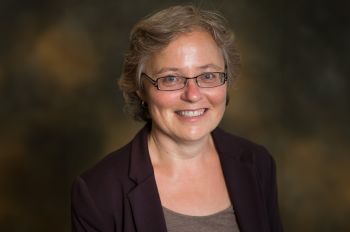Marie Hicks Appointed National Humanities Center Fellow
Professor’s Fellowship Will Examine the History of Algorithmic Bias

Marie Hicks, associate professor of history at Illinois Tech, was recently appointed as a fellow of the National Humanities Center. Hicks is one of 39 new fellows who will conduct individual research projects during the 2018–19 academic year. During her fellowship Hicks will work on the project “Queer Users and the Digital State: A Prehistory of Algorithmic Bias.”
“I’m absolutely delighted to have won a National Humanities Center fellowship for next year, in order to work on my new book, which will be a deep prehistory of the ways that digital technologies construct bodies and identities,” Hicks says. “I’m enormously grateful to Illinois Tech, and in particular Lewis College of Human Sciences and the Department of Humanities, for supporting me in my work and continually centering the humanities as essential in engineering education.”
From the history of transphobic algorithmic bias in the mainframe era, to the creation of the first computer matchmaking systems, her new book will focus on some of the most pressing issues facing society today—who we are and why we use technologies the way that we do. By uncovering the long and fraught historical roots of the current digital revolution, this book will shed light on the hidden histories of computing that are shaping our current experiences.
Hicks and the other 2018–19 fellows were chosen from more than 500 applications from United States-based and international scholars.
Joining the Department of Humanities faculty in 2011, Hicks is a historian of technology, gender, and modern Europe, specializing in the history of computing. Her research focuses on how gender and sexuality bring hidden technological dynamics to light, and how the experiences of women and LGBTQI people change the core narratives of the history of computing in unexpected ways.
Her 2017 book, Programmed Inequality: How Britain Discarded Women Technologists and Lost Its Edge in Computing, has received many accolades, including the 2018 PROSE Award in the History of Science, Technology, and Medicine category.




